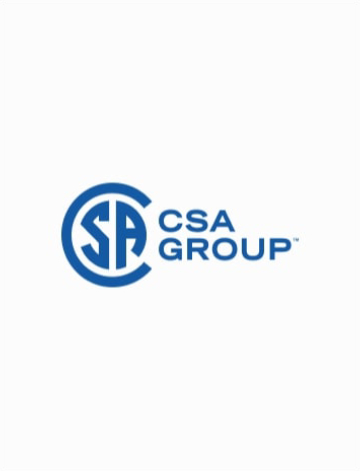Product Highlight
This standard is offered as a complimentary download.
Click the “Add to Cart” button and checkout to download and access the document from CSA OnDemandTM .
CSA B701:17 - Carer-inclusive and accommodating organizations
Preface
This is the first edition of CSA B701, Carer-inclusive and accommodating organizations.
CSA Group would like to thank The Canadian Institute for Health Research and McMaster University for their financial support in the development of this Standard.
Introduction
Worker-carers are found in all industries and all occupations, regardless of workplace size or sector. In Canada, for example, of the 8.1 million Canadians who provided unpaid caregiving in 2012, approximately 5.6 million were also engaged in paid employment. The majority of these workers work full-time while providing care to their family member or friend. Fifty percent (50%) of worker-carers are between the ages of 45-65, representing the most experienced workers in the paid labour market.
Carer-inclusive and accommodating workplace policies, otherwise known as family-friendly workplace policies or work-family initiatives, are defined as deliberate organizational changes - in policies, practices, or the target culture - to reduce work-family conflict and/or support workers' lives outside of work.
While the implementation of limited government-mandated policies provide security and support for worker-carers, organizations provide another opportunity. Organizations who have recognized the importance of retaining skilled staff, and who are now facing the management of workers who are also responsible for unpaid care responsibilities, are finding creative solutions to keeping their staff employed and healthy. One strategy is through carer-inclusive and accommodating organization policies.
As one example, labour force participation (the percentage of working age people in an economy who are either employed or unemployed but actively looking for work) is significantly affected by the family/informal care needs of the growing ageing population. At the same time, family sizes are decreasing, more women are employed in the labour force, mobility is increasing, and the number of seniors requiring care is projected to continue to grow; in Canada, for example, the number of seniors requiring care is expected to double between 2012 and 2031. These trends are impacting the growing number of worker-carers, defined as family members and other significant people who provide care and assistance to individuals (e.g., parent, spouse or life partner, adult child, sibling, and/or friend) living with ongoing conditions such as physical, mental, and/or cognitive, while also working in paid employment.
Scope
1.1
This Standard specifies requirements for an organizational program for worker-carers providing care to
a) adult care recipients (e.g., adults with disabilities, elderly dependents); and
b) long-term child care recipients (e.g., due to chronic illness).
Note: The intent of this Standard is to align with government sponsored programs.
This Standard also addresses gender specificity of the caregiving role for gender-specific accommodations.
This Standard is applicable to any organization, regardless of size and sector.
1.2
This Standard is intended for workplaces and is not intended for community-based program providers or public service delivery (e.g., homecare services, government income support measures).
1.3
In this Standard, shall is used to express a requirement, i.e., a provision that the user is obliged to satisfy in order to comply with the standard; should is used to express a recommendation or that which is advised but not required; and may is used to express an option or that which is permissible within the limits of the Standard.
Notes accompanying clauses do not include requirements or alternative requirements; the purpose of a note accompanying a clause is to separate from the text explanatory or informative material.
Notes to tables and figures are considered part of the table or figure and may be written as requirements.
Annexes are designated normative (mandatory) or informative (non-mandatory) to define their application.
-----------------------------------------------------------------------------------------------------------------------
B701HB-18 - Helping worker-carers in your organization
Preface
This is the first edition of CSA B701HB, Helping worker-carers in your organization. This Handbook has been developed to support the implementation of CSA B701, Carer-inclusive and accommodating organizations.
CSA Group gratefully acknowledges the valuable work of Dr. Allison Williams, Dr. Amin Yazdani, and Ashleigh Patterson, the authors of this Handbook.
Introduction
There are more than 5.6 million employees in Canada, representing approximately 35% of the workforce, with adult/elder caregiving responsibilities. Lack of workplace support can result in these individuals, also known as worker-carers, leaving the workforce, missing work days, taking early retirement, and experiencing reduced productivity. These costs to employers can be avoided.
Given that all workplaces are affected by the demands placed upon worker-carers and the changing nature of carer responsibilities (e.g., fewer publicly provided community services, a growing number of male caregivers), it is incumbent upon Canadian workplaces to implement carer-inclusive and accommodating workplace practices. In many jurisdictions, this is also a legal requirement. Doing so provides many advantages for worker-carers and the employer, particularly given skilled labour shortages.
This Handbook assists organizations in implementing a comprehensive carer-inclusive and accommodating program including:
- Establishing the roles of senior management
- Understanding and incorporating legal, social, and ethical requirements
- Reviewing internal practices
- Identifying gaps and barriers
- Training and communicating
- Providing accommodation and an emergency response plan
- Monitoring and measuring progress
- Performing audits, management reviews, and continual improvement

